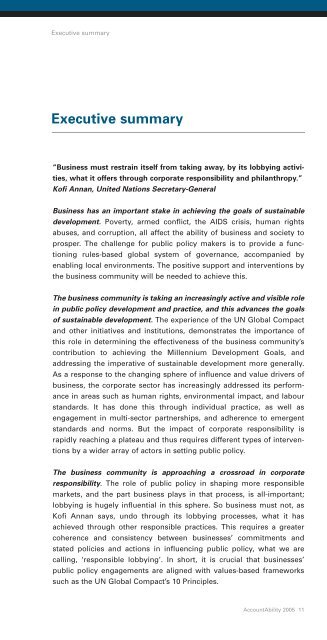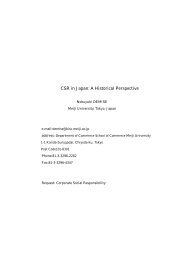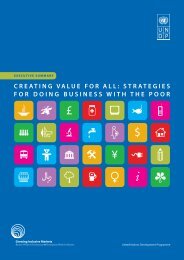Towards Responsible Lobbying - AccountAbility
Towards Responsible Lobbying - AccountAbility
Towards Responsible Lobbying - AccountAbility
Create successful ePaper yourself
Turn your PDF publications into a flip-book with our unique Google optimized e-Paper software.
Executive summary<br />
Executive summary<br />
“Business must restrain itself from taking away, by its lobbying activities,<br />
what it offers through corporate responsibility and philanthropy.”<br />
Kofi Annan, United Nations Secretary-General<br />
Business has an important stake in achieving the goals of sustainable<br />
development. Poverty, armed conflict, the AIDS crisis, human rights<br />
abuses, and corruption, all affect the ability of business and society to<br />
prosper. The challenge for public policy makers is to provide a functioning<br />
rules-based global system of governance, accompanied by<br />
enabling local environments. The positive support and interventions by<br />
the business community will be needed to achieve this.<br />
The business community is taking an increasingly active and visible role<br />
in public policy development and practice, and this advances the goals<br />
of sustainable development. The experience of the UN Global Compact<br />
and other initiatives and institutions, demonstrates the importance of<br />
this role in determining the effectiveness of the business community’s<br />
contribution to achieving the Millennium Development Goals, and<br />
addressing the imperative of sustainable development more generally.<br />
As a response to the changing sphere of influence and value drivers of<br />
business, the corporate sector has increasingly addressed its performance<br />
in areas such as human rights, environmental impact, and labour<br />
standards. It has done this through individual practice, as well as<br />
engagement in multi-sector partnerships, and adherence to emergent<br />
standards and norms. But the impact of corporate responsibility is<br />
rapidly reaching a plateau and thus requires different types of interventions<br />
by a wider array of actors in setting public policy.<br />
The business community is approaching a crossroad in corporate<br />
responsibility. The role of public policy in shaping more responsible<br />
markets, and the part business plays in that process, is all-important;<br />
lobbying is hugely influential in this sphere. So business must not, as<br />
Kofi Annan says, undo through its lobbying processes, what it has<br />
achieved through other responsible practices. This requires a greater<br />
coherence and consistency between businesses’ commitments and<br />
stated policies and actions in influencing public policy, what we are<br />
calling, ‘responsible lobbying’. In short, it is crucial that businesses’<br />
public policy engagements are aligned with values-based frameworks<br />
such as the UN Global Compact’s 10 Principles.<br />
<strong>AccountAbility</strong> 2005 11

















